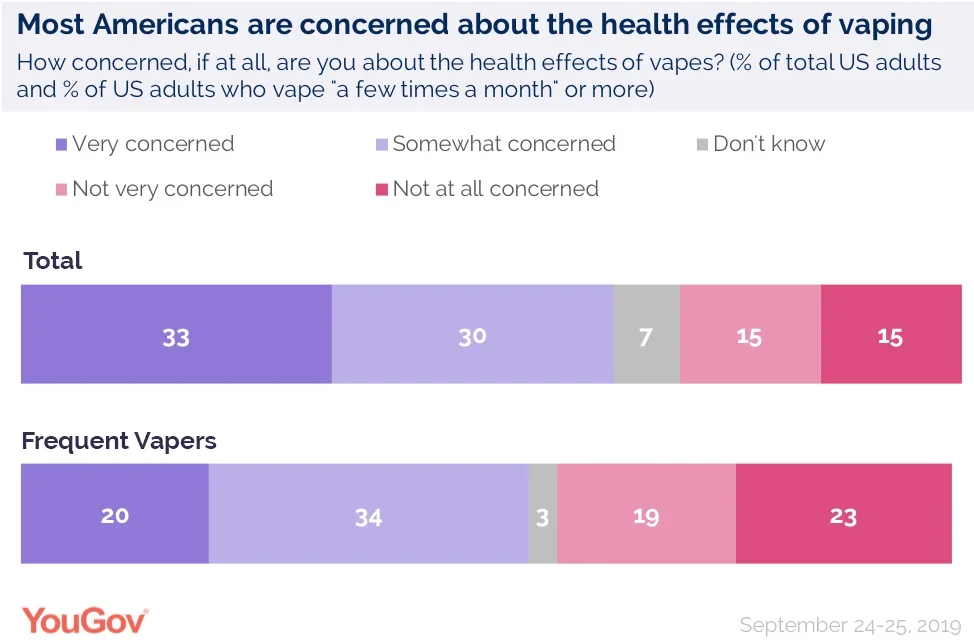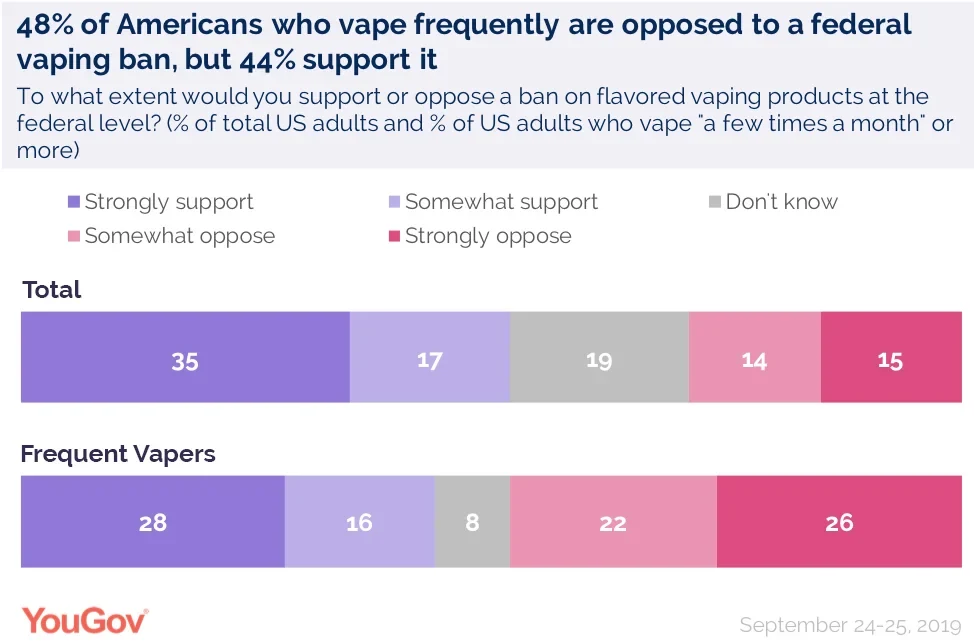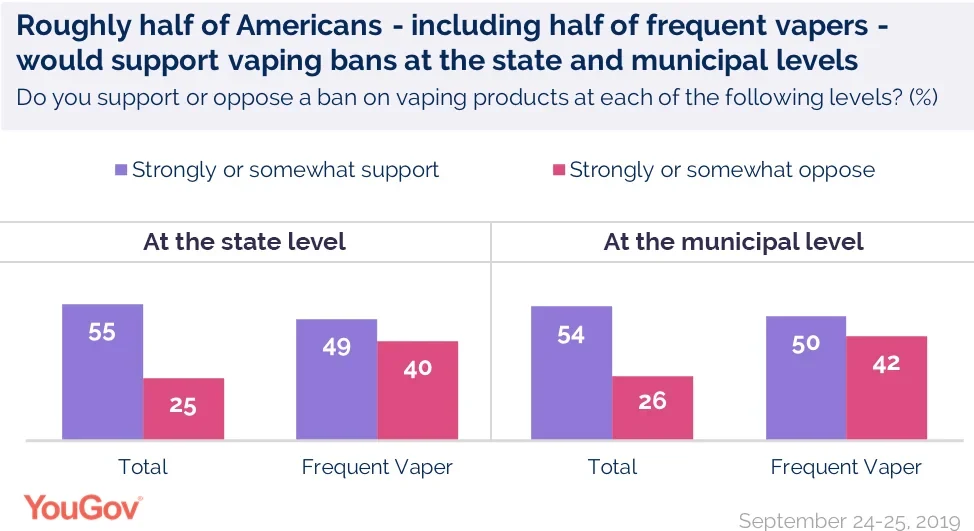E-cigarettes were initially marketed as a safer alternative to cigarettes, but new data from YouGov finds that most Americans are worried about the health effects of vaping. About six in 10 (63%) Americans say they’re somewhat concerned or very concerned about the health effects of vapes.
According to the CDC, more than a dozen people have died this year due to vaping-related illnesses, while more than 1,000 others have experienced lung injuries caused by vaping.
YouGov’s data finds that almost all (90%) Americans have heard at least a little bit about vaping-related deaths in the news recently, which may impact how concerned they are about health effects of vaping.
People who vape at least a few times a month (“Frequent vapers”) are less likely than the general population to say they’re concerned about the health effects of vapes — but a majority still express worry about it. Over half (54%) of frequent vapers say they are concerned about the health effects of vaping.

Most (53%) Americans don’t believe that e-cigarettes and vapes are particularly effective when it comes to helping people quit smoking cigarettes. Those who vape frequently (40%) are four times as likely as the general population (10%) to say that vaping is a “very effective” way for people to stop smoking cigarettes.
Related: This dataset was mentioned by Digital Trends in the article Majority of Americans support vape ban, doubt it helps people quit smoking
But former cigarette smokers (those who indicated that they used to smoke cigarettes, but no longer do so) don’t tend to believe that vaping is an effective way to stop smoking cigarettes. About four in 10 (38%) former cigarette smokers say they believe vaping is “not at all effective” to help curb smoking. Another 18 percent of this group believe it’s “not very effective.”
In light of recent deaths and injuries caused by vaping, authorities are considering what to do next. The Trump administration recently announced plans to ban the sale of flavored electronic cigarettes, following a similar ban in Michigan. Massachusetts recently instituted a statewide limited ban on all vaping products -- not just flavored ones -- for four months.
Most (52%) Americans say they would support a federal ban on flavored vaping products. About three in 10 (29%) would oppose it. Frequent vapers are more split: 44 percent say they would support a federal ban on flavored vaping products while 48 percent of this group say they would oppose it.

Would a ban on flavored vaping products change how people view President Donald Trump? For most Americans (65%), the answer is no. But again, frequent vapers are split in their opinion: 26 percent would support him more than they currently do and 27 percent would support him less if he were to enact a federal ban of some kind on e-cigarettes. More than one-third (36%) of this group says their opinion of the president would be unchanged.
Majority support does exist for a ban on vaping products by states (55%) and cities (54%). Frequent vapers are also likely to support bans at the state (49%) and municipal (50%) level; though 40 percent of frequent vapers oppose a state-level ban and 42 percent oppose a municipal ban on vaping products.
YouGov also asked Americans how they feel about Walmart’s recent decision to stop selling e-cigarettes and vapes in their stores.

As a whole, Americans are more likely to say this change makes them view the brand in a more positive light (45%), while 10% say the change makes them think negatively of Walmart. Close to half (46%) of frequent vapers say they feel more positively towards the retailer as a result of this change, while about one in five (19%) feel more negatively.
See full results from this survey here.
Methodology: Total unweighted sample size was 1,227 US adults, including 134 US adults who are “frequent vapers,” meaning they vape at least a few times a month. The figures have been weighted and are representative of all US adults (ages 18+). Interviews were conducted online between September 24 - 25, 2019.
Image: Getty










